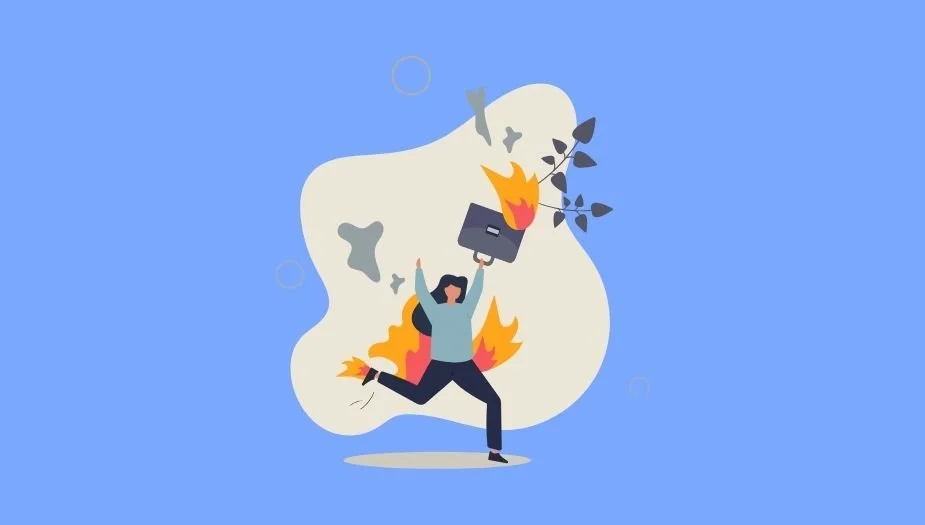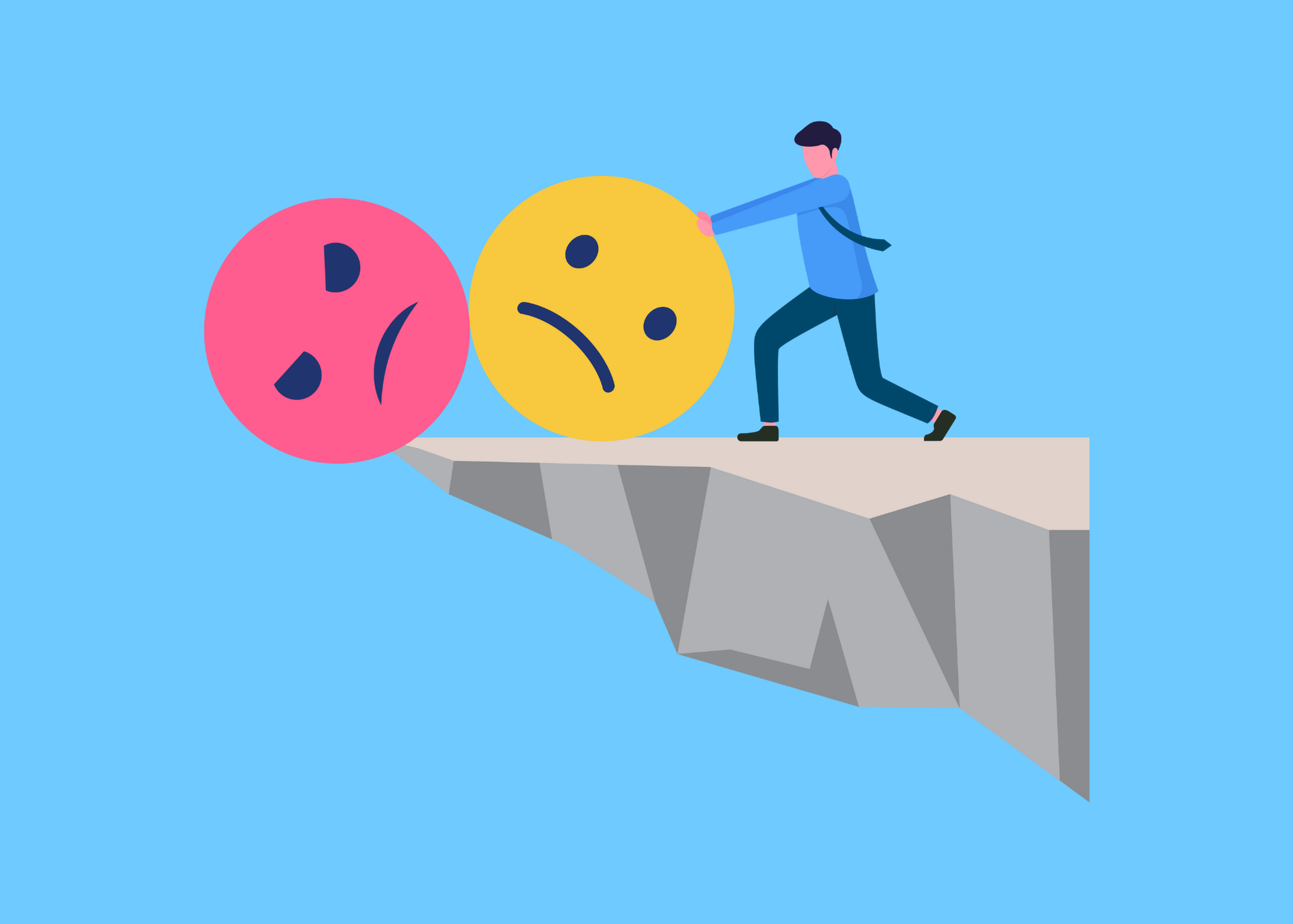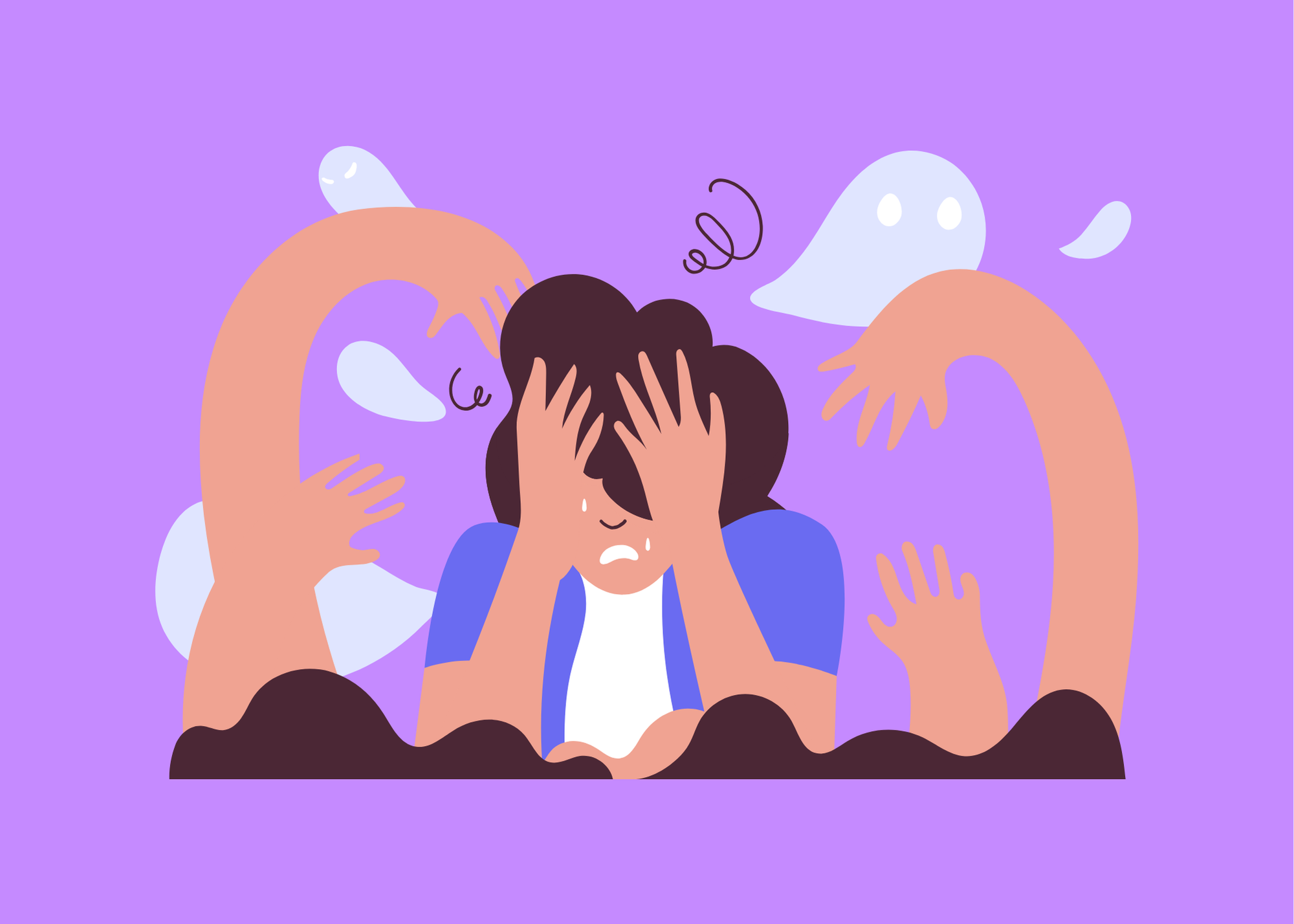The Road to Burnout: 12 Work Habit Warning Signs You’re Pushing Yourself to the Brink
If you see yourself in this list, it’s time for a course correction.
Burnout doesn’t show up overnight. It’s a slow, insidious creep—often mistaken for dedication. You’re crushing it— until you’re not. High achievers don’t just wake up one day exhausted, disengaged, and questioning their entire career. No, it starts with seemingly small, well-intentioned habits—the kind that make you look like a rockstar in the workplace but, over time, erode your mental, emotional, and physical health.
If any of the following behaviors sound familiar, consider this your wake-up call before you hit the burnout wall at full speed.
12 Work Habit Warning Signs You’re Pushing Yourself to Burn Out
1. Always Email Accessible
Your inbox is never closed. Whether it’s 10 PM, Saturday morning, or during your so-called vacation, you’re on top of every email. A delayed response feels like a career crime, so you answer immediately—even if it means sacrificing sleep, family time, or sanity.
Why it’s a problem: Constant availability wires your brain for stress and prevents full recovery. Research shows that being “always on” leads to chronic stress, poor sleep, and decreased cognitive function.
What to do instead: Set email boundaries. Define clear work hours and use features like ‘Do Not Disturb’ or auto-replies. Trust me, the world won’t end if you don’t respond within five minutes.
2. Open-Ended Availability
Your calendar? A free-for-all. Colleagues book meetings whenever they want, slicing your day into unproductive chaos. Deep work? Forget it. Your schedule is an all-you-can-eat buffet for everyone but you.
Why it’s a problem: Research from the University of California, Irvine, shows that it takes an average of 23 minutes to regain focus after an interruption. If your day is back-to-back meetings, you’re in a constant state of cognitive whiplash.
What to do instead: Block ‘focus time’ in your calendar and protect it like your job depends on it—because it does.
3. Starting Your Shift Early to Get Ahead
You think arriving at your desk before sunrise gives you a competitive edge. But all you’re really doing is depleting your energy before the real workday even begins.
Why it’s a problem: Starting early means finishing late, which means less recovery time. Chronic sleep deprivation is linked to lower productivity, impaired decision-making, and increased burnout risk.
What to do instead: Prioritize sleep and start your day at a sustainable pace. High performance isn’t about working more; it’s about working smart.
4. Overtime to Complete Tasks
“You can leave when the work is done” sounds great—except the work is never done. So you stay late. Again. And again.
Why it’s a problem: A study in the Journal of Occupational Health Psychology found that people who consistently work overtime have higher stress levels, poorer health, and increased burnout risk.
What to do instead: Define a hard stop for your workday. If something’s urgent, address it tomorrow with a fresh brain.
5. Perfectionism
Good enough? Not in your vocabulary. You tweak, refine, and obsess over details that no one else even notices.
Why it’s a problem: Perfectionism is a fast track to burnout. It leads to inefficiency, chronic dissatisfaction, and a never-ending stress loop.
What to do instead: Embrace ‘good enough’ when appropriate. Excellence is valuable; perfectionism is destructive.
6. Lack of Delegation
“If I want it done right, I have to do it myself.” Sound familiar? You hoard tasks, convinced that no one else can handle them as well as you.
Why it’s a problem: Refusing to delegate overloads your plate and stifles team growth. Studies show that leaders who delegate effectively reduce stress and improve overall team performance.
What to do instead: Trust your team. Delegation isn’t a weakness; it’s a leadership skill..
7. Multitasking
You pride yourself on juggling five tasks at once. But in reality, you’re just switching between distractions at record speed.
Why it’s a problem: Neuroscience proves that multitasking reduces efficiency and increases stress. You’re not doing more—you’re just doing everything worse.
What to do instead: Practice deep work. Focus on one task at a time for maximum impact.
8. Not Disconnecting
Work follows you home like a needy pet. You check emails during dinner, review reports in bed, and brainstorm strategy on your ‘day off.’
Why it’s a problem: Without mental detachment, you never fully recharge. Chronic work intrusion into personal life is a key predictor of burnout.
What to do instead: Create firm boundaries. When you’re off, be off.
9. Ignoring Self-Care
Workouts? Maybe next week. Hobbies? Who has time? Relaxation? Sounds nice in theory.
Why it’s a problem: Skipping self-care leads to chronic stress and long-term health problems. Burnout isn’t just mental—it wrecks your body too.
What to do instead: Prioritize self-care like a meeting with your boss. It’s non-negotiable.
10. Skipping Breaks
Lunch at your desk. No walk breaks. Just a full-throttle sprint from morning to night.
Why it’s a problem: Research shows that skipping breaks reduces productivity and increases fatigue. Breaks aren’t a waste of time; they’re a performance enhancer.
What to do instead: Take regular breaks. Even five minutes can reset your brain.
11. Overcommitting
You say ‘yes’ to everything: new projects, extra work, more responsibility. Your workload grows, but your capacity doesn’t.
Why it’s a problem: Overcommitment leads to chronic overwhelm and resentment. The more you take on, the less effectively you execute.
What to do instead: Learn to say ‘no’ strategically. Protect your time for what truly matters.
12. Lack of Autonomy
Your work is dictated by someone else’s priorities, and you have little control over how you do your job.
Why it’s a problem: Lack of autonomy is a burnout accelerant. Research shows that employees with little control over their work experience higher stress and job dissatisfaction.
What to do instead: Advocate for flexibility where possible. If autonomy is out of reach, focus on controlling what you can—like your workflow and boundaries.
Final Thoughts: The Road to Recovery
Burnout doesn’t announce itself with sirens. It creeps in through habits that feel productive—until they aren’t. Recognizing these patterns early is your best defense.
If you see yourself in this list, it’s time for a course correction. Burnout isn’t a badge of honor. Prioritize your well-being, set boundaries, and redefine success in a way that includes you.
Because if you burn out, who’s going to do all the amazing things you’re meant to do?
Article References
The sources cited in the article:
Forbes. "Am I Burned Out? How to Recognize The 12 Stages of Burnout." Forbes - Am I Burned Out? 12 Stages of Burnout
WebMD. “Burnout: Symptoms and Signs.” WebMD - Burnout: Symptoms
Inc. “The 12 Stages of Burnout, According to Psychologists.” Inc. - The 12 Stages of Burnout, According to Psychologists
The NYTimes (NYT). “Your Body Knows You’re Burned Out.” NYT - Your Body Knows You’re Burned Out
Psychology Today (PT). “The Stress Spectrum and Learning to Read the Nervous System.” PT - The Stress Spectrum
Psychology Today (PT). “Emotional Well-Being and the High Achiever.” PT - Emotional Wellbeing and the High Achiever
CPTSD Foundation. “CPTSD in the Workplace: The Overachiever.” CPTSD Foundation - CPTSD in the Workplace: The Overachiever
Verywell Mind (VM). “11 Signs You Might Be an Overachiever.” VM - 11 Signs You Might Be an Overachiever
Positive Psychology (PP). "Helping a Workaholic in Therapy." PP - Helping a Workaholic in Therapy
American Psychological Association (APA). “Perfectionism and the High Stakes Culture of Success.” APA - Perfectionism






